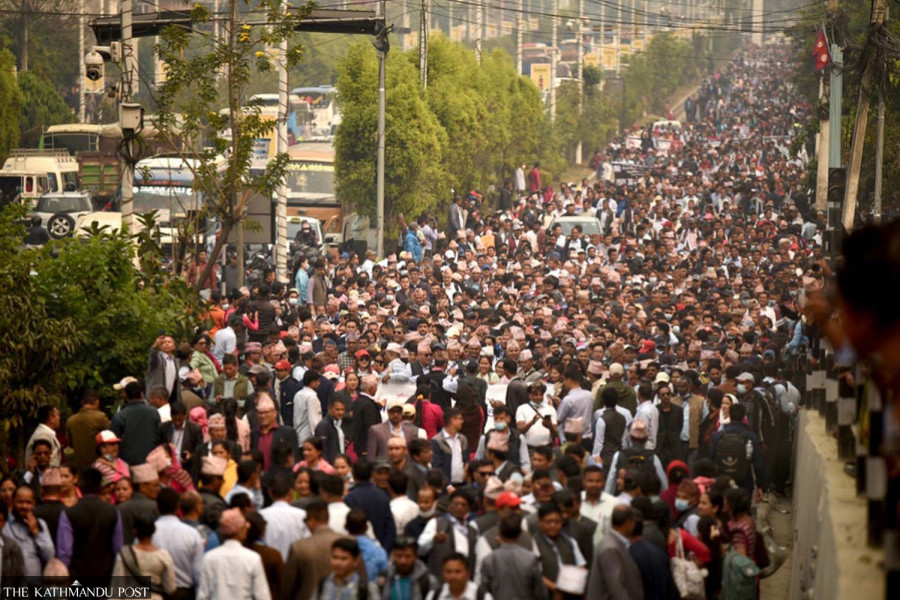Editorial
Existential threat
Our academic institutions could fall apart without urgent actions to rebuild youth trust in them.
Demonstrations are now daily occurrences in Nepal’s federal capital, Kathmandu. The one that has been continuing for more than three weeks is the teachers’ protest demanding the enactment of the revised School Education Bill which has yet to see the light of day despite pledges from successive governments. The bill aims to modernise and improve Nepal’s education system which still rests on an Act designed over 50 years ago. (If the government has reservations over the bill, it has yet to communicate them clearly to the protestors.)
A lot has happened amid the protest this month—the National Examination Board postponed grade 12 examinations affecting approximately 550,000 students, following Prime Minister KP Sharma Oli’s directive. Education minister Bidhya Bhattarai resigned at the peak of the protest due to a lack of support from the prime minister and the finance minister to resolve it, plus agitating teachers have not only refused to mark the answer sheets of the SEE examinees but also declined to start the academic year unless the bill is endorsed.
Unfortunately, the way events are unfolding is creating a lot of unease among the students, parents and those concerned about the country’s education system. Uncertainty looms over the exams and the resumption of classes. Although a parliamentary committee is trying to give a final shape to the bill by May first week, the exams scheduled for May 4 may have to be postponed again, as the process of passing the bill could stretch to May 10. Students are now stressed about their academic future and troubled by the fear of delays in graduation and timely enrollment in another grade. Delayed exams also lead to a loss of self-confidence and feelings of uncertainty. Many have already taken to social media, questioning whether the teachers and lawmakers truly value their future.
Those in power, including the prime minister, ministers and bureaucrats appear intent on turning the country into an undesirable place for students. Out of sheer frustration, young people are jetting off to colleges and universities abroad. Notably, over the past few years, over 100,000 students have acquired the No Objection Certificate (NOC) each fiscal year, emptying Nepal’s college and university classrooms. Almost half of the grade 12 graduates enroll in foreign universities. These numbers don’t include those pursuing higher studies in India, so the scale of student exodus is much higher than what these figures suggest.
The priority right now should be to swiftly pass the education bill in close consultations with the agitating teachers, which in turn will create the condition for conduction of exams on rescheduled dates, and resumption of classes. In the long run, there are no shortcuts. The state must consistently prioritise education, a priority that should be evident not just on paper but also in the deeds of top politicians and bureaucrats. After all, all is not well even in foreign countries, where Nepali students often have to put up with high living costs, discrimination and many other problems. Yet given the wretched state of our schools and academia, they would be forgiven for still taking the risk. It would perhaps not be an exaggeration to say that the current challenges present an existential crisis for Nepal’s education system.




 9.6°C Kathmandu
9.6°C Kathmandu














